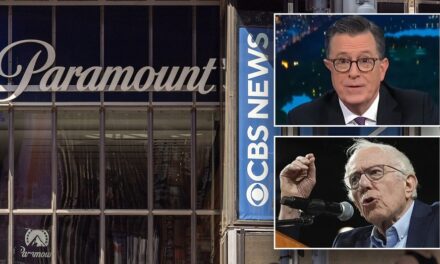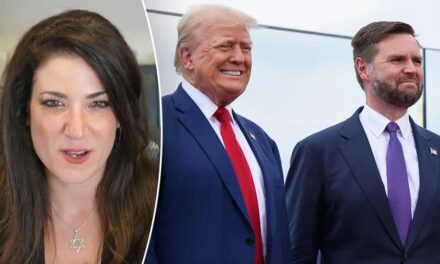In a recent upheaval within the media landscape, renowned sports commentator Stephen A. Smith took to social media to address a disparaging remark made about him by MSNBC. The network referred to him as a “megaphone for MAGA propaganda,” igniting a firestorm of responses from fans, critics, and fellow commentators alike.
Stephen A. Smith, known for his outspoken views and frequent appearances on ESPN’s “First Take,” is no stranger to controversy. His commentary often sparks debate, transcending the world of sports and traversing into political and social issues, where his passionate delivery captivates audiences.
However, it was his affiliation with conservative voices that seemed to provoke the ire of MSNBC. The description of Smith as a “megaphone for MAGA propaganda” was a reaction to his vocal support for certain conservative viewpoints, particularly during discussions surrounding key issues in American society.
In response to the network’s comments, Smith took to social media with a video that has garnered significant attention. He reiterated his commitment to speaking his mind and highlighted the importance of free speech in today’s polarized environment. “I will not be silenced,” he declared, expressing his discontent with how he was portrayed by the network.
“To label me as simply a conduit for a political ideology is to underestimate my ability to think critically and independently,” Smith stated emphatically. He emphasized that his viewpoints may align with some conservative ideals at times, but that does not make him a representative of any one ideology. Smith posited that true discourse should welcome diverse perspectives, regardless of political affiliations.
The backlash against MSNBC’s rhetoric showcases the deep divides present within the current media climate. Many of Smith’s supporters rallied behind him, asserting that his views merit consideration rather than dismissal based on preconceived notions of political alignment. His ability to captivate audiences hinges on his willingness to engage in difficult conversations and bridge gaps between disparate opinions.
The term “megaphone for MAGA propaganda” itself reflects a broader narrative within partisan media discourse, where individual commentators and their ideologies can be caricatured and oversimplified for the sake of sensationalism. This incident sheds light on the challenges faced by commentators who straddle the line between sports commentary and political discussion, a position that can often lead to misinterpretations of their intentions.
Many industry observers have noted that in a time where politics intrudes almost every aspect of life, commentators like Smith find themselves under intense scrutiny for the viewpoints they espouse. With audiences increasingly polarized, one misstep or mischaracterization can lead to detractors labeling someone without recognizing the nuances of their opinions.
Additionally, Smith’s response underscores a powerful call for media literacy among audiences. There is a pressing need for consumers of news and commentary to engage critically with the content they consume, questioning motivations and recognizing biases that may influence how narratives are presented.
This incident also draws attention to the complicated relationship between sports and politics. Athletes, commentators, and fans are frequently navigating discussions where the realms of sports intersect with social justice, equality, and political ideologies. In this crossroad, figures like Smith become pivotal players, shaping public discourse and often facing backlash from those who prefer a more simplified narrative.
The controversy around Smith’s characterization by MSNBC extends beyond just a personal affront; it speaks to a larger conversation about the role of media in shaping public perception. In an era dominated by social media platforms, the rapid dissemination of information can lead to hasty judgments that do not always account for context or complexity.
Furthermore, the reaction to Smith’s comments highlights the importance of dialogue and civil discourse amidst a culture that is increasingly inclined to brand individuals based on their ideological leanings. Smith’s assertion that he refuses to be defined purely by his political associations is a stance that resonates with many who feel similarly constrained by societal labels and expectations.
As the dust settles on this recent media exchange, it remains to be seen how it will impact Smith’s career and public perception moving forward. His ability to navigate the complexities of his roles as both a sports commentator and cultural critic may be put to the test as audiences reflect on what it means to engage in a world where opinions are met with swift judgments.
This incident also opens the floor for an ongoing discussion regarding accountability within media personalities. Are they responsible primarily for their sports commentary, or do they owe it to their audiences to remain politically apolitical? That question is one that continues to manifest in various ways, challenging commentators to find balance in their platforms while addressing the pressing issues of the day.
Moreover, as more figures in sports and media engage with political discourse, the boundaries between these areas will likely continue to blur, leading to more contentious debates over the responsibilities of public figures. The criticism faced by Smith serves as a reminder that the intersection of sports and social issues is not going away anytime soon, nor should it be feared.
In conclusion, Stephen A. Smith’s robust rebuttal to MSNBC’s criticism highlights the vital roles of media, opinion, and free speech in democratic discourse. As he navigates the aftermath of the fallout, his journey serves as a focal point for wider discussions about the complexities of public opinion and the expectations placed on those in the limelight. The determination to maintain a voice in the conversation, irrespective of political affiliations, stands as a testament to the ongoing evolution of commentary in the contemporary media landscape.
The conversation surrounding Smith’s response invites audiences to reflect not just on his role as a commentator, but on the broader implications of labeling individuals in a dichotomous world. The ability to engage with differing viewpoints while maintaining one’s identity and beliefs is a skill that is invaluable amidst the noise of modern-day discourse.
Ultimately, as the media continues to evolve, voices like Stephen A. Smith’s will remain crucial in traversing the turbulent waters of opinion, ideology, and the pursuit of discourse that is both enlightening and reflective of the rich tapestry that is modern America.
































